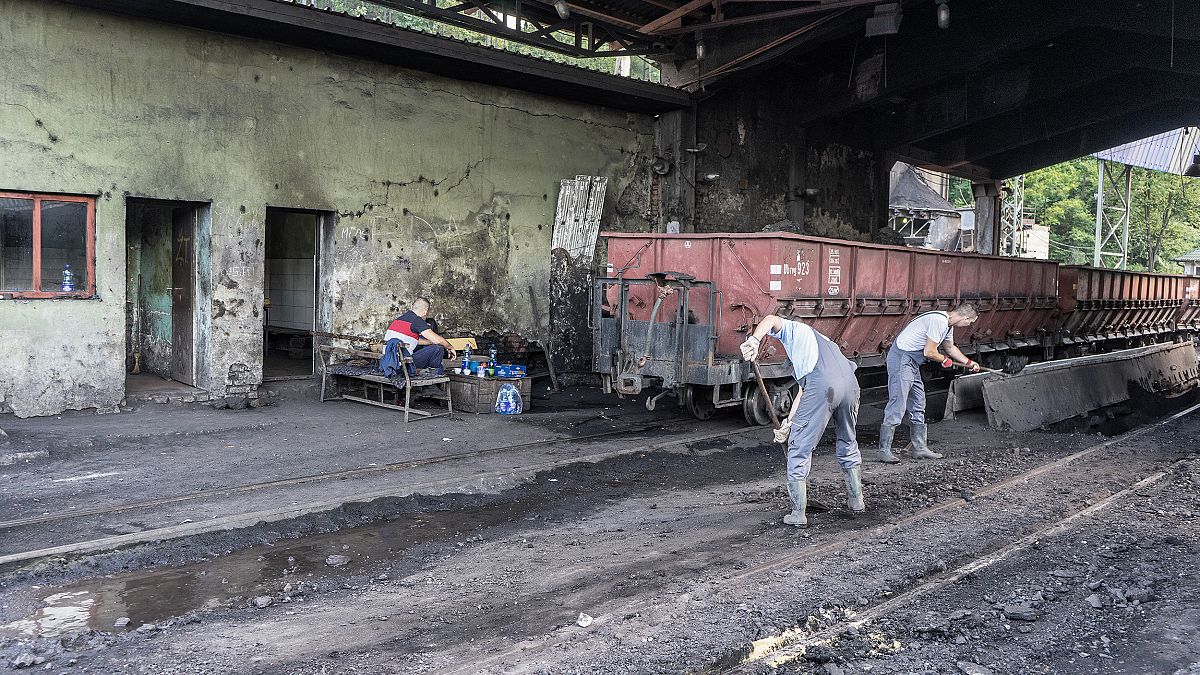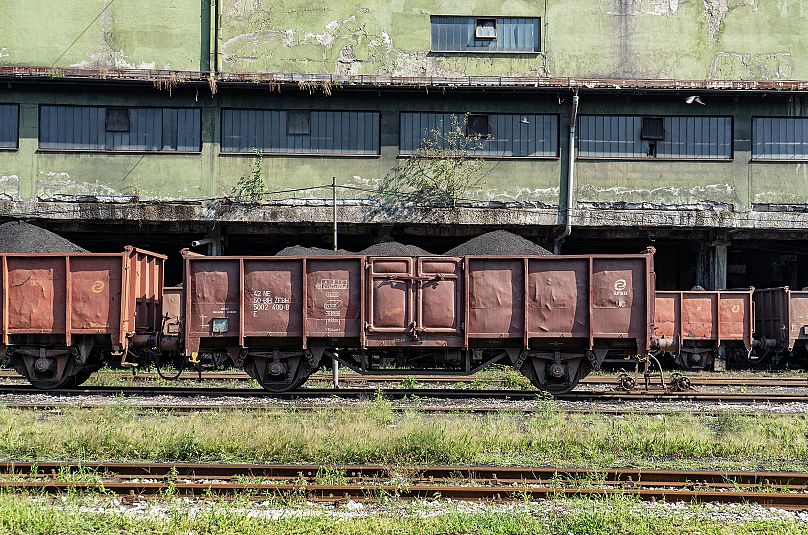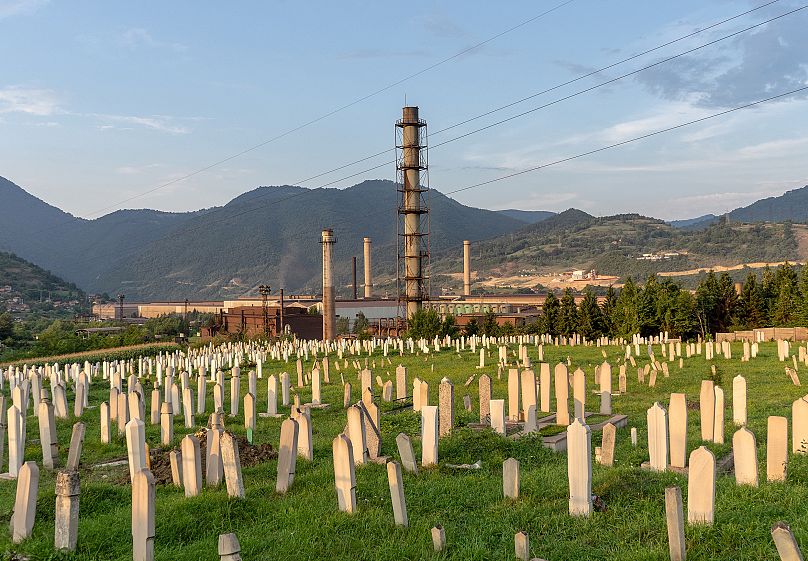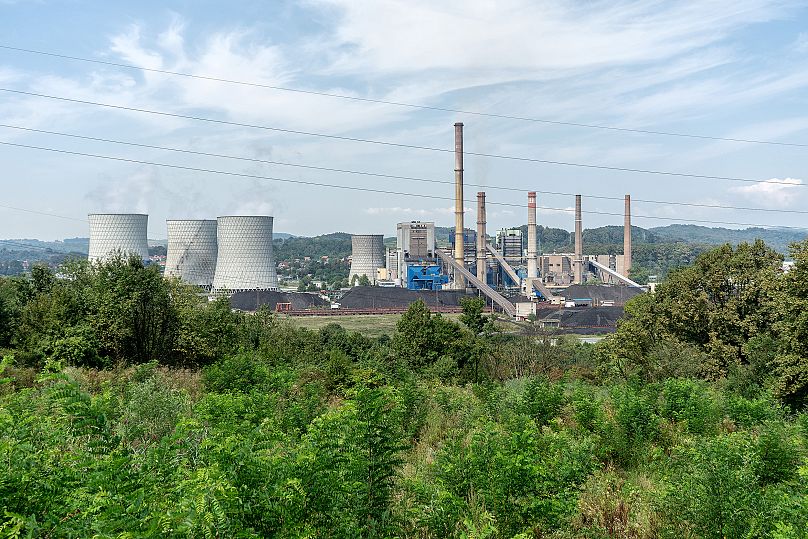Despite their detrimental impact on environment and health, this post-Yugoslav republic is not gearing up for decarbonisation. The reason? Money.
In Europe, there is still a place where coal is transported by a steam locomotive: the Banovići mine in Bosnia-Herzegovina.
This is not the only obsolete technology that is used in the Balkan country's energy sector: Bosnia hosts three of the ten most polluting coal-supplied thermal power plants in Europe.
Despite their negative impact on environment and health, associations and experts point out that Bosnia is not trying to reduce its dependence from fossil fuels, one of the hot topics at the UN Climate Change Conference (COP25) in Madrid. The reason? Money.
Bosnia’s abundant underground coal reserves and the profitability of the business model - exporting electricity produced in old power plants - make it virtually impossible for the country to meet any of the emission targets set by the Paris agreement.
The coal business is increasingly profitable for a few - but harmful for many.
Trading profit for health
All five power plants located in Bosnia are coal-supplied. This makes the country the only exporter of energy in the Balkans.
Tuzla, the third Bosnian city, hosts one of the biggest coal-based power in the region. The plant Termoelektrana, in combination with the heavy car traffic, the industries and the domestic use of coal for heating, make Tuzla the city with the worst air quality in the Western Balkans.
Tuzla’s pollution is 6.5 times above the level recommended by World Health Organisation standards.
According to the data provided by The Global Climate and Health Alliance (GCHA) The Tuzla coal power plant emits 896 tons of PM2.5 annually and it’s the largest PM2.5 source in the country. PM10 and PM2.5 are polluting particles present in the air we breathe. The particles can adsorb toxic substances such as sulphates, nitrates, metals and volatile compounds.
“Pollutants have increased cancer incidence in the nearby areas,” says Denis Zisko, project manager of the National Bosnian Centre for Ecology and Energy.
A Bankwatch report released in June 2019 points out that 8 out of 41 deaths from lung cancer and 29% of deaths by stroke are caused by PM2.5 pollution. The same research outlined that 136 premature deaths were caused by PM2.5, 17% of all deaths of adults above 30 years.
Local activist Goran Stojak explains that children born in Tuzla and its surroundings suffer from breathing problems since they are born. The Bankwatch report states that PM2.5 pollution is responsible for 23 per cent of children’s bronchitis – 160 out of 695.
“Ashes are stored in an open-air artificial lake, with no protection to prevent air and soil pollution. During the dry season the water evaporates and the dust, full of heavy metals, is carried by wind directly into the town”, Stojak explains.
A study by the Center for Ecology and Energy Tuzla estimates that coal-burning could have a strong impact on Tuzla's population: 4.900 years less of life expectancy, 131,000 lost working days and over 170 hospital admissions for cardiac and respiratory problems.
According to a 2016 study carried out by local environmentalist NGO Heal, the impact on health of Bosnian coal-based power plants has a cost of between € 390 million and € 1.134 million for the state.
However, since air pollutants move across borders, Heal reckons they contribute for a total bill of between € 1.1 billion and € 3.1 billion in Europe.
Politics worsens the situation
Today’s Bosnia struggles to cope with the complex system it inherited from the so-called "Dayton agreements", ending the war that ravaged the country in the ’90s.
Decisions are hardly taken as local politics is in constant search for a balance between the three main ethnicities (Croatian, Serbian and Bosnian). In a country led by three rotating presidents, coming up with a viable environmental strategy seems impossible, argues professor Samir Lemeš of Zenica’s university.
The coal-system
Although unproductive, power plants and coal mines are not closed because they embody the pillar of Bosnia's “coal-system".
“The energy sector benefits from large government subsidies that compensate for the mines' losses and keep electricity prices artificially low”, adds Lemeš. “Political parties control the industry and appoint their henchmen to the executive positions, while also granting employment opportunities to their rank-and-file members”.
As the revenues of energy exports are shared by the few, the population bear the price of such a lubricating system in terms of taxes and illnesses.
“Paradoxically” Žisko affirms, “the Bosnian state is currently indebting itself taking out sizeable loans to build new coal-based thermal power plants. Such investments are expected to be paid back only in a distant future, arguably when Bosnia is already an EU member”.
The country will be forced to close its plants by that time, since Bosnia will have to decarbonise its economy to join the EU.
This lack of long-sightedness strikingly contrasts with the presence of various alternative energy sources throughout the country. According to UN former representative of Bosnia-Herzegovina: “Its rivers could be easily exploited for building hydro-power plants, for instance. A radical mindset change is needed to give up on coal”.
This video was made with the support of te CGP – CENTRO DI GIORNALISMO PERMANENTE
Translations and additional help: Milica Čavić, Dalia Vesnić, Aleksandra Ivic, Martina Napolitano



